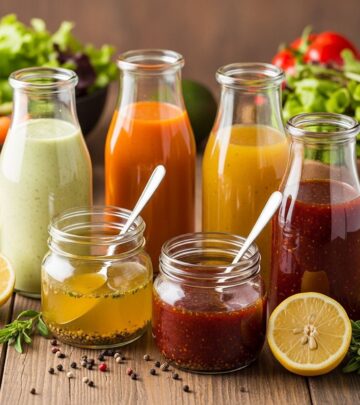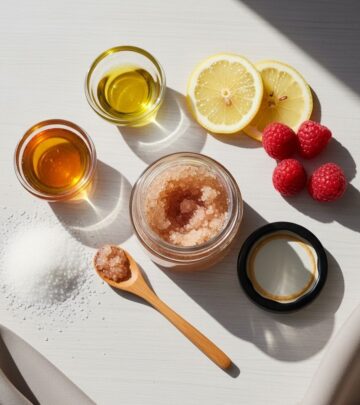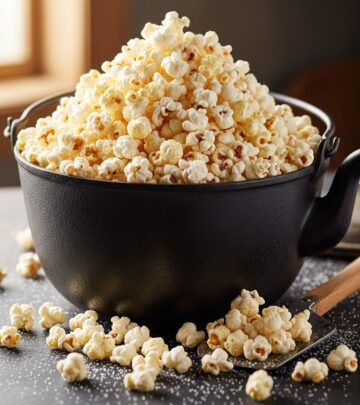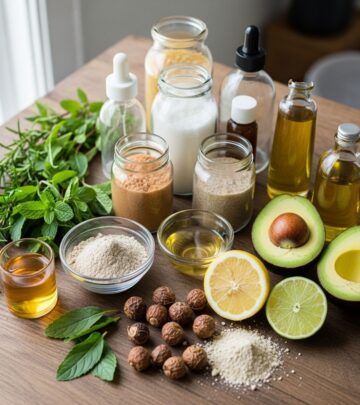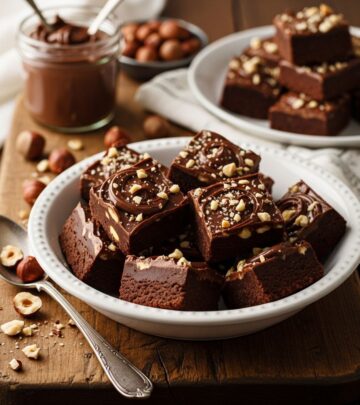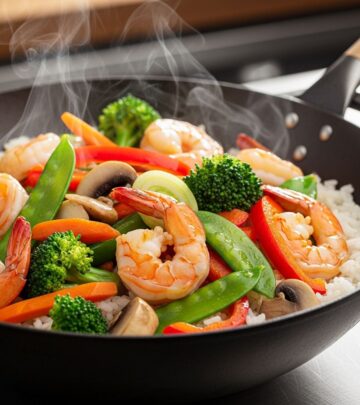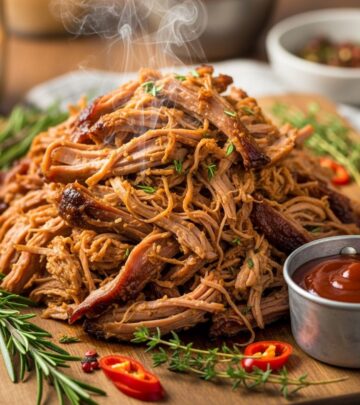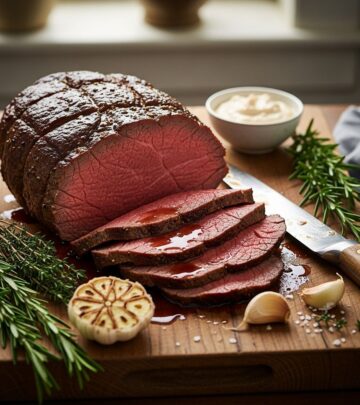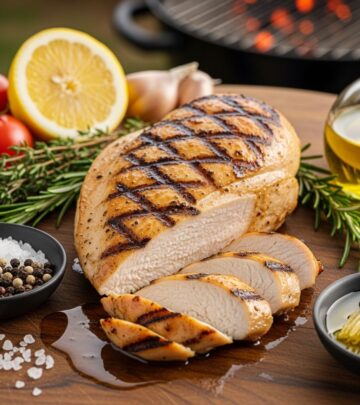Quick Fruit and Citrus Barbecue Sauce: Bright, Bold, and Easy
A versatile glaze that melds seasonal sweetness with zesty tang for grilling dishes.
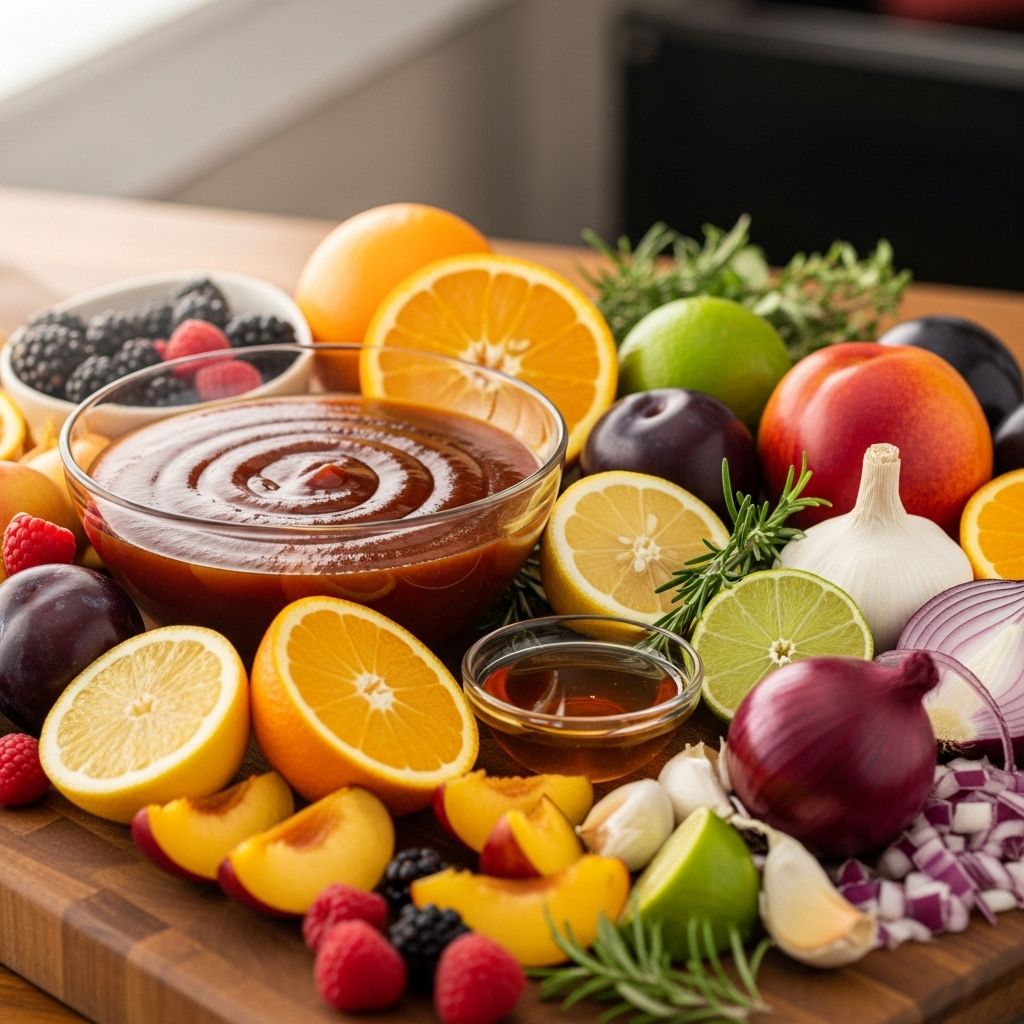
If you’re seeking to elevate your barbecue without hours of simmering, a quick fruit and citrus barbecue sauce is the key. This sauce combines the sweet tang of fresh or frozen fruit with the bright acidity of citrus, balanced by savory, smoky barbecue staples. It’s not only easy and adaptable but also punches above its weight in flavor—delivering a glaze, dip, or basting sauce that’s ready in under 30 minutes.
Why Make a Fruit and Citrus BBQ Sauce?
Store-bought barbecue sauces can be predictably sweet or heavily spiced, but making your own allows for freshness and creativity. By harnessing the essence of peak-season fruit and aromatic citrus, you can:
- Personalize sweetness and tartness to suit any grilled meat or vegetable.
- Highlight seasonal flavors (like mango in summer or cranberry in fall).
- Control the texture and spice—keep it chunky or silky smooth, bold or mild.
- Make it fast: This recipe is designed for minimal simmering and maximum flavor.
Choosing Your Fruits and Citrus
Almost any ripe, juicy fruit can find a home in barbecue sauce. The main requirements are a good balance of sweetness and acidity, and some natural pectin to help the sauce thicken. Here are some fruits that work well:
- Stone fruits: Plums, peaches, apricots, nectarines; their natural sugars caramelize beautifully.
- Berries: Blueberries, raspberries, blackberries, strawberries; provide sweetness and intense color.
- Mango and pineapple: Tropical fruits add vibrant flavor and tang.
- Cranberries: Bring tartness, especially good for poultry.
- Apples and pears: Subtle sweetness, but add a splash of lemon or orange for brightness.
For the citrus component, rely on the zest and juice of lemons, limes, oranges, or even grapefruit. Zest brings aromatic oils for high-impact flavor, while the juice offers fresh acidity.
Picking Fresh or Frozen Fruit: Does It Matter?
This barbecue sauce is ideal for using up fresh, ripe fruit. However, frozen fruit works just as well—just thaw it first. Frozen berries, in particular, break down quickly when cooked, speeding up the sauce’s development. Avoid canned fruit in syrup, as it often yields a cloyingly sweet sauce that can overpower the meat.
Essential Elements for a Balanced Barbecue Sauce
The interplay between sweetness, acidity, savoriness, and heat is what makes a great sauce. Here are the core building blocks:
- Fruit Base: Pick one type or a blend for depth.
- Citrus: Zest and juice for complexity.
- Sugar or Sweetener: Brown sugar, honey, or maple syrup (optional, depending on fruit’s sweetness).
- Acid: Apple cider vinegar or white wine vinegar boosts tanginess.
- Tomato Component: Tomato paste or ketchup for body and umami, especially if using less pectin-rich fruits.
- Savory Flavor: Soy sauce, Worcestershire sauce, or liquid smoke for depth.
- Spices: Fresh garlic, ginger, chili flakes, smoked paprika, and black pepper are classic picks.
Step-by-Step: Making Quick Fruit and Citrus Barbecue Sauce
This recipe is highly customizable—swap ingredients depending on what is available, or your flavor preferences. Here’s an easy method:
Ingredients
- Fruit: 1 cup chopped fresh or thawed frozen fruit (such as peach, plum, mango, or berries)
- Citrus: Zest and juice of 1 orange (or lemon/lime, as desired)
- Sugar: 2-3 tablespoons brown sugar or honey (adjust to taste)
- Vinegar: 2 tablespoons apple cider vinegar
- Tomato paste or ketchup: 2 tablespoons
- Soy sauce or Worcestershire sauce: 1 tablespoon
- Spices: 1 clove minced garlic, 1 teaspoon grated ginger, 1/2 teaspoon smoked paprika, pinch of chili flakes
- Salt and black pepper to taste
Directions
- Combine all ingredients in a saucepan over medium heat.
- Simmer, stirring frequently, until fruit breaks down and sauce thickens—about 15 to 20 minutes.
- For a smooth texture, puree with an immersion blender or cool slightly and blend in a regular blender. For a rustic finish, mash fruit with a spoon and leave a few chunks.
- Taste and adjust seasoning: Add more sugar for extra sweetness, or more vinegar for tang.
- Let cool to room temperature. The sauce thickens as it cools and as pectin from the fruit sets up.
- Pour into a jar and refrigerate. Use within 1–2 weeks.
Customizing the Sauce for Your BBQ
This recipe encourages experimentation. Use this table to mix and match based on what you’re grilling and what’s in season:
| Fruit | Citrus | Best Pairings | Notes |
|---|---|---|---|
| Peach | Lemon | Pork, chicken | Peach gives mellow sweetness, lemon brightens |
| Pineapple | Lime | Ribs, shrimp, tofu | Tropical, tangy; balances fatty meats |
| Mango | Lime | Fish, grilled vegetables | Smooth puree, aromatic |
| Blackberry | Orange | Duck, steak | Deep color, wine-like tartness |
| Cranberry | Orange or lemon | Turkey, pork | Sharp, tangy, great for autumn BBQ |
| Apple | Lemon | Sausages, chicken | Mild, needs extra vinegar/acidity |
Tips for the Best Quick Barbecue Sauce
- Use ripe fruit for naturally higher sugar and flavor; underripe fruit can taste flat.
- Taste as you cook: Fruit sweetness varies, so adjust sugar and vinegar for the right balance.
- Layer flavors: Add zest just before blending for fresher citrus notes; swirl in a dash of liquid smoke or extra ginger for a signature twist.
- Don’t over-reduce: The sauce thickens further as it cools.
- Blend for smoothness: A minute with a blender yields a glossy, pourable sauce—great for glazing or drizzling.
How to Use Fruit and Citrus Barbecue Sauce
- Brush onto grilled pork chops or chicken during the last few minutes of grilling for a sticky, caramelized glaze.
- Serve as a dipping sauce for smoked meats, skewers, or even roasted vegetables.
- Coat roasted tofu or tempeh for a plant-based barbecue highlight.
- Spread on sandwiches or burgers in place of ketchup for a fruity, tangy upgrade.
- Stir into baked beans or grilled corn for an extra punch of brightness.
Storing and Saving
This homemade barbecue sauce keeps well in the refrigerator in a tightly sealed jar for up to one week. If you want to freeze it, let the sauce cool completely and pack it into airtight freezer-safe containers—use within two months for best flavor. Always reheat gently before using and check for freshness.
Frequently Asked Questions (FAQs)
Q: Can I use canned fruit in syrup?
A: It is not recommended, as canned fruit in syrup can overpower your sauce with excessive sweetness and take away from the natural fruit flavor. If using canned fruit, choose varieties packed in juice and drain thoroughly.
Q: How spicy is this sauce?
A: The recipe is only mildly spicy; you’re in control. Adjust the amount of chili flakes, fresh chopped chilies, or hot sauce to suit your heat preference.
Q: Can I make this sauce without a blender?
A: Yes! For a rustic style, mash the cooked fruit with the back of a spoon for a chunky sauce. For a silky sauce, blend with a hand blender or a food processor.
Q: How versatile is this sauce with different meats?
A: Extremely! You can tailor the fruit and citrus combination to complement pork, poultry, seafood, tofu, or even grilled vegetables. See the pairing table above for inspiration.
Q: Is this sauce gluten-free?
A: It can be made gluten-free by ensuring your soy sauce or Worcestershire sauce is gluten-free, or by using tamari as a substitute.
Variation Ideas
- Maple-mustard style: Substitute some brown sugar with maple syrup and add 1 tablespoon Dijon mustard.
- Ginger-orange cranberry: Blend cranberries, orange zest, and ginger for a winter-inspired glaze.
- Peach-chipotle: Add a chopped chipotle pepper in adobo for smoky heat with summer peaches.
- Lime-mango habanero: Use ripe mango and add a sliver of habanero pepper for a bright, hot sauce perfect for seafood.
Conclusion: Fresh, Fast, and Flavorful Barbecue Sauce for All Seasons
A quick fruit and citrus barbecue sauce can turn even a casual weeknight cookout into something vibrant and memorable. By leaning on the bounty of fresh fruit and the punch of real citrus, you’ll craft a sauce that’s adaptable, elegant, and truly your own—no bottled flavor required.
Read full bio of medha deb

